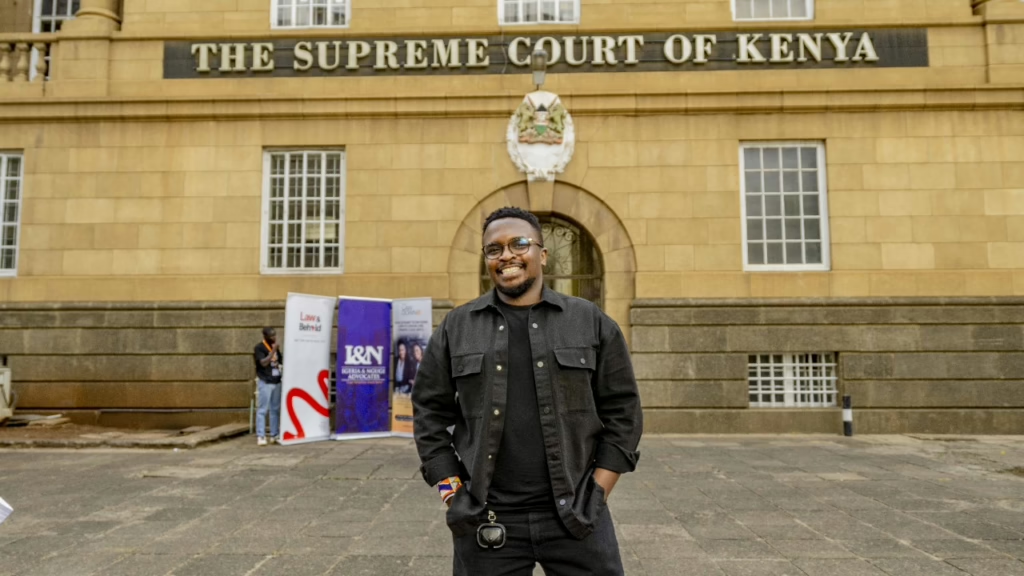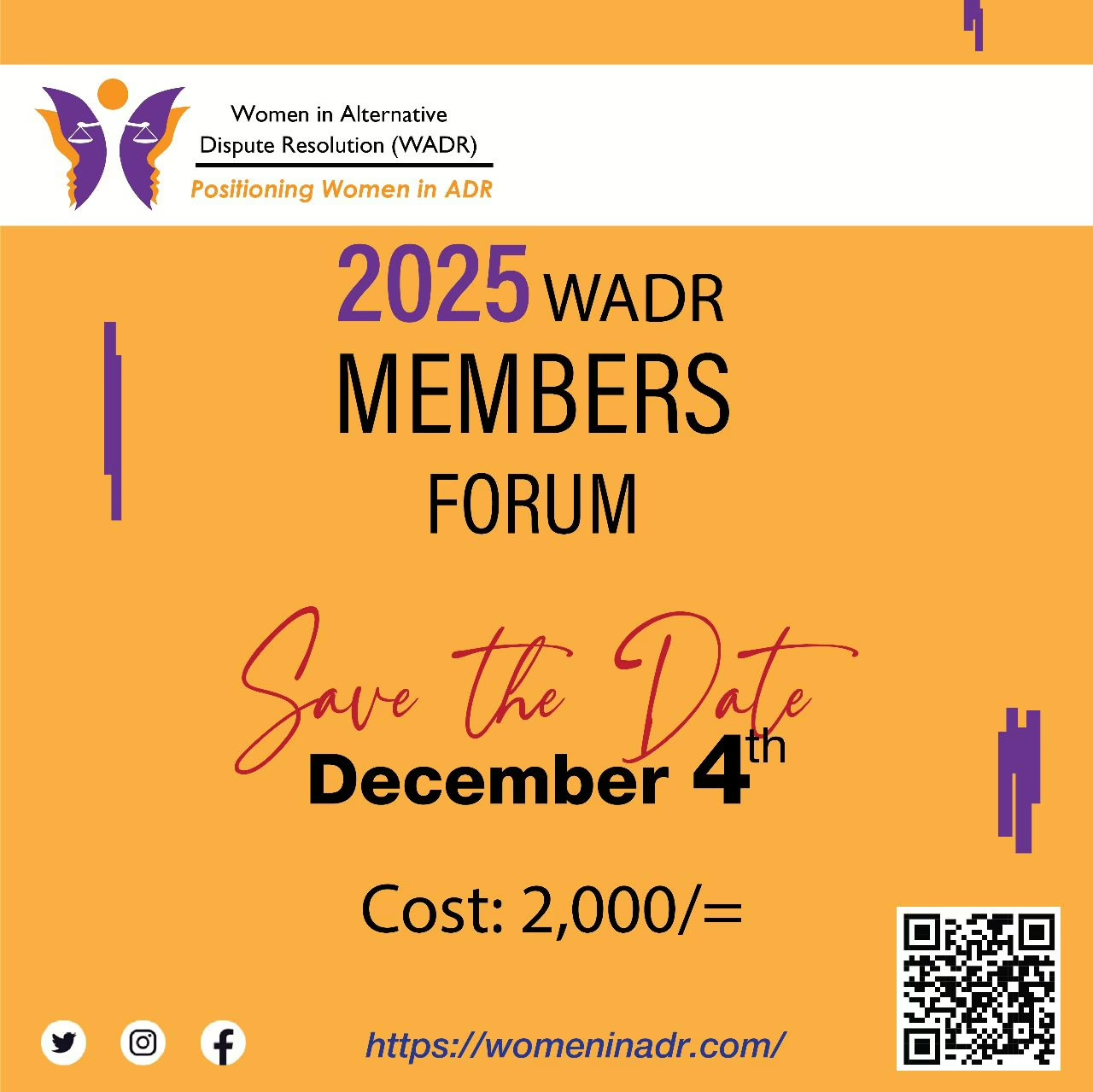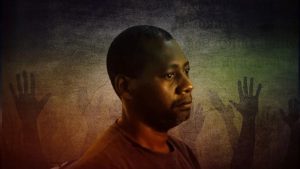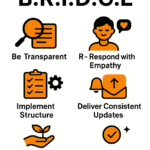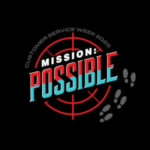The 21st of August is World Entrepreneurship Day, a day set apart for founders, innovators, entrepreneurs, and changemakers to reflect on progress and growth. The observance also presents a unique opportunity for individuals and entities within the entrepreneurial ecosystem to participate in storytelling, foster recognition, connect, and inspire.
Legal entrepreneurship is one of our four core pillars on our platform, The LawDown Africa, and with good reason. GeoPoll conducted a survey on the state of entrepreneurship in Kenya and derived the data highlights below:
- 87% of youth in the survey expressed interest in starting their own businesses (One of the most read articles on our platform is an article on how to start a law firm in Kenya).
- 56% of respondents prefer running their businesses full-time,
- 39% expressed interest in pursuing entrepreneurship on a part-time basis.
- 33% opted for retail and trade
- 27% chose agriculture
- 21% leaned toward technology
The data above shows that entrepreneurship is an area of interest for Kenyan youth, who constitute 35% of the Country’s population. So, what does it take to excel as an entrepreneur?
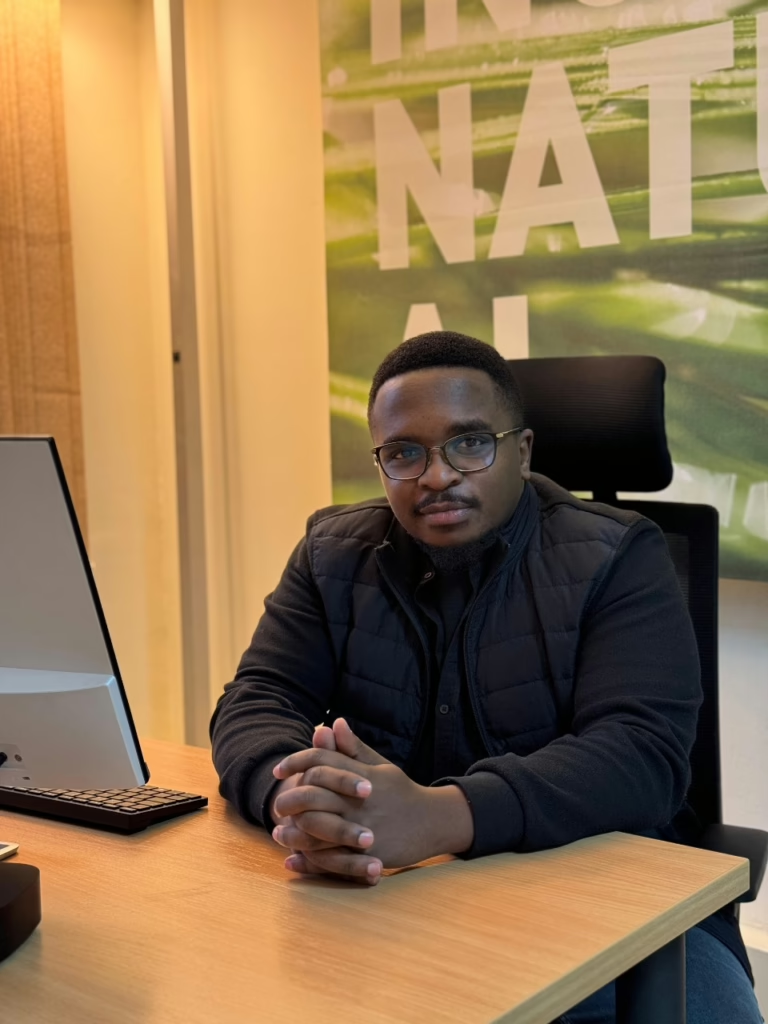 Our contribution to this year’s World Entrepreneurship Day is via what we do best: storytelling. So, today, we feature Tim Dagori Muiruri, the Senior Startup & Innovation Manager at Advantage Austria Nairobi, Commercial Section of the Austrian Embassy. His work at Advantage Austria involves connecting Austrian businesses with opportunities in Kenya, and vice versa.
Our contribution to this year’s World Entrepreneurship Day is via what we do best: storytelling. So, today, we feature Tim Dagori Muiruri, the Senior Startup & Innovation Manager at Advantage Austria Nairobi, Commercial Section of the Austrian Embassy. His work at Advantage Austria involves connecting Austrian businesses with opportunities in Kenya, and vice versa.
Second, Tim, who graduated from Law School almost ten years ago, also has experience running business ventures, from his university days, including pioneering the selling of women’s clothes online, and linking small-scale avocado farmers in Murangá County to price-premium buyers in the manufacturing and export sectors.
Regarding legal entrepreneurship, Tim also works as a consultant offering general counsel for startups and investors in startups, empowering small and medium enterprises (SMEs) to access legal and compliance services. He is the co-founder of innolegis.ai, an all-in-one platform to help startups and SMBs ease legal and compliance using technology and on-the-ground consultants to enable them to establish, scale, and run operations anywhere across the African continent. The innolegis.ai also includes a legal health check feature that helps SMBs establish their compliance needs and levels.
“I’ve always identified as an entrepreneur regardless of who I’m working for (Myself or corporates) because I believe entrepreneurship is more of a mindset than a career path. According to my former employer, thinking like a business owner in a corporate setting (intrapreneurship) is one of my strongest competitive advantages. Intrapreneurship helps me to date to serve clients better because that’s the lens through which I approach things.”
Clearly, Tim’s passion for entrepreneurship shows up in all facets of his career. Therefore, it was an honour to have him unpack entrepreneurship from a mindset perspective rather than the mainstream founder’s journey angle. In this piece, we explore the influences that fueled Tim’s passion for entrepreneurship, his values/ philosophies, the joys and challenges in entrepreneurship, and the lessons he’s picked up along the way on walking out the entrepreneur’s journey, first, as an entrepreneur, and second, as an advisor to entrepreneurs.
The Makings of a Serial Entrepreneur: Tim’s Formative Years
Tim identifies as a lawyer in tech. However, depending on who he interacts with, he always gets the question: “Are you a lawyer hiding in tech, or a techie hiding in law?’’ This humorous question brings to the fore the multi-disciplinary, interdisciplinary, and cross-disciplinary nature of entrepreneurship, which are some of the elements we’ll explore in this story.
As an interdisciplinary individual, how did Tim develop his passion for the legal profession? Second, how did he end up becoming a lawyer in tech? Was this what he always envisioned? How does business/entrepreneurship connect the dots that map out his career?
Tim’s journey as a lawyer in tech, or a techie in law with a dash of diplomacy, if you prefer, began in the 90s. “I’m a typical millennial who grew up in the 90s watching my parents work hard, and their work ethic rubbed off on me.” His father was a full-time businessman, while his mother ran a bakery in Ngong town alongside her full-time teaching job. He grew up in Upper Matasia, a 30-minute drive from Ngong Town, which was close enough to Nairobi, yet it still offered the quintessential countryside living, allowing Tim to enjoy the best of both city and country life.
Tim always knew he wanted to be a lawyer. However, he first voiced this desire when he was ten years old. “It was back in December 2002, and presidential campaigns were in high gear. The excitement was palpable, with this being the first election after former President Moi’s two-term limit lapsed. My extended family had gathered, and while the adults discussed the political climate in the country, I was focused on one presidential candidate, James Aggrey Bob Orengo.”
That day was the first time Tim declared that he was going to be a lawyer when he grew up, and it became his song for the next few years. Fast-forward to 2006, on Tim’s first day of secondary school, and he had an encounter with the man who would later be his first mentor in the legal profession.
“My father, who was accompanying me to school, made a pitstop at Mr. Chiuri Ngugi’s chambers; Mr. Chiuri Ngugi is the Founding and Managing Partner at CKR Advocates. He (my father) introduced me to Mr. Chiuri and told him that I wanted to be a lawyer. Mr. Chiuri told me to see him after I complete high school. I don’t know whether it was by design or just a mere coincidence. Knowing my dad, it was probably planned. ”
Four years later, Tim followed up on his word and visited Mr. Chiuri’s office a week after completing his Kenya Certificate of Secondary Education (KCSE) exam. Mr. Chiuri told him to come see him after gaining admittance to a law school. “I was admitted to the Jomo Kenyatta University of Agriculture and Technology (JKUAT) law school Karen, and I went to see Mr. Chiuri with my admission letter in hand.” Mr. Chiuri postponed the meeting and asked Tim to come see him after finishing his first year of law school.
“I went to see him during the long holiday after completing my first year, and he finally took me on as an intern at his law firm.” Tim’s remuneration included a monthly stipend. “Mr. Chiuri also offered to share his packed lunch with me so I wouldn’t have to spend my stipend on lunch. I thought it was weird at the time, but what this meant was that I got the unique opportunity to have lunch with a senior every day. During lunch, he would speak into my life and advise me on various matters.”
Tim later joined the University of Nairobi (UoN) law school in Parklands. By this time, he had left his internship at CKR Advocates and had started a new opportunity with Mr. Chiuri’s blessing. “Some colleagues would tell me that my eyes sparkled when I was in court.” Essentially, he loved learning. I didn’t know what was going on some of the time, but I was always thrilled to be a part of it.”
So, did the law choose Tim, or did Tim choose the law? He considers it a blessing and a privilege to be able to pursue a career he had set his mind to at just ten years old. “It was very deliberate on my part, but I also consider it a blessing and a privilege to have been surrounded by people who supported me toward this goal.”
Tim is naturally intentional, and this is among the character traits that make him thrive in the entrepreneurship space. He jokes that perhaps he became a lawyer because it is something he had to actualize, since he spoke it.
“However, as I grow older, I’m gradually accepting that it’s okay to let things go midway sometimes; I don’t know if it’s a good thing or a bad thing. For instance, I always felt compelled to complete every book I started reading. But now, if I give it three or four tries and I still feel disinterested, then I give it away.”
Tim highlights the necessity of balance in entrepreneurship, particularly regarding startups.
“You need to know whether something is or isn’t working because, at the end of the day, startups are an experiment. At some point, you need to be self-aware enough, commercially aware, or technically aware to know whether or not something is working. If I may use the dead-horse analogy, if a horse is dead, no amount of flogging will make it move in any direction.”
Besides his internship at CKR Advocates, Tim also had the opportunity to work at the Commission on the Implementation of the Constitution of Kenya until it was disbanded in August 2015. He also had a three-month stint at the Institute for Social Accountability (TISA).
When he decided he wanted to be a lawyer at ten years old, his role models were the likes of James Orengo, Dr.John Khaminwa, Dr. Fred Ojiambo, SC (who also facilitated a masterclass at our 2025 career fair), and other powerhouses in constitutional law and litigation. “Although I was thriving in the public policy space (I had risen from an intern to a program associate at the commission before one of the commissioners I had worked with recommended me to TISA Kenya), I felt more inclined toward the business side of the law.”
Nonetheless, he credits his time in public policy with honing his capacity to relate public policy to business, commerce, and entrepreneurship. “That’s where I learned government relations, which often entails dealing with high-level people. So it was a very, very valuable experience that I use to date.”
Besides pivoting from constitutional law and litigation, Tim’s legal career took another unique turn when he opted to pursue his legal career as a lawyer, and not an Advocate of the High Court of Kenya. “It’s always interesting when I introduce myself to people as a lawyer, then I have to explain to them that I can’t represent them if they’re arrested. However, that minor detail always serves as a conversation starter, and I usually seize the opportunity to explain to them that I’m a different kind of lawyer and I do A, B, C…”
He, however, highlights that his story is still being written. He might consider becoming an Advocate of the High Court of Kenya one day, to complete what he started. Additionally, Kenya’s legal framework means he cannot join a partnership without being a member of the Kenyan bar.
Nonetheless, he points out that it is possible to have a fulfilling career as a lawyer, even without necessarily being admitted to the bar. Any issue that causes you to postpone your admission to the bar shouldn’t hold you back from moving forward and building a career.
“In a pure legal practice, then an admission to the bar is something that you should definitely pursue because ultimately, for most firms, it even defines your earning potential and the roles you can take up. Therefore, the key is being clear on what you want and how being an Advocate of the High Court fits into your long-term goals.”
Although Tim discovered his preference for the business side of the law while he was already a lawyer, he traces his love for business and entrepreneurship to his formative years. While his first influence in this regard was his parents, he also credits his childhood as a millennial with his passion for disruptive innovation.
“I credit the times we grew up in because I finished high school in 2009, which is when the first fiber optic cable landed in Kenya. Facebook went global in 2006. I think I opened my Facebook account in 2007, and a Twitter account (Now X) in 2009. Kenya was also going through some kind of renaissance. And renewed interest in the Internet and technology. This was when, in fact, my former employer, iHUB Nairobi, was established. Although the internet existed before, it was becoming more democratized.”
iHUB Nairobi was set up in March of 2010, while Co-Creation Hub Africa (CcHUB), which acquired iHub in September 2019, was established in October of the same year in Nigeria. Tim would later work at Co-Creation Hub/ iHub Nairobi, a globally recognized innovation center dedicated to accelerating the application of social capital and technology.
However, before joining CcHUB, he worked at Kodastropi, an Ethiopian PR firm, where he worked in Government Relations and Public Policy. “This is where I saw firsthand how the two are core to business as a strategy and tactic. After Kodastropi, I went to Igeria and Ngugi Advocates, where I did my pupillage.”
Working at iHub reiterated what he already knew about the entrepreneurship mindset. He either acquired or sharpened the soft skills below. While Tim acquired the highlighted skill sets while working for incubators and entrepreneurs, the skills apply across the board.
1. Commercial Awareness/Curiosity
“I believe you need commercial awareness or commercial acumen, which you can only develop by exposing yourself to literature, situations, news, books, and other business-focused resources. You also need to be analytical and curious. If I may give an example, AI is the buzzword in town. You may be curious about it, but the key is not just hopping on the bandwagon, but truly trying to understand it. “Okay, what exactly is this thing? How does it work? And how can I apply it in my life or work?”
2. Strategic/ Compelling Communication
Learning also comes with unlearning, and one thing Tim had to unlearn and re-learn is to be a better communicator. “Both lawyers and techies need to learn the art of being strategic/compelling communicators. I know, as lawyers, we think that we’re good at it, but one of the things I’ve learned is that we are so bad at communicating because we often communicate for fellow lawyers.” Tim defines strategic communication as the ability to absorb and then translate complex ideas clearly. In the absence of strategic communication, you may understand a concept, but struggle to articulate it for someone who may not understand the technical language.
Tim appreciates that he had good teachers to help him relearn communication. Interestingly, most of them were lawyers.
3. Building Networks and Fostering Relationships
The third lesson Tim learned is the necessity of building networks. ‘’I also quickly realized the importance of relationship building, or social capital. It’s about having the audacity to reach out. We live in a world where you can send someone a message and communicate your value.”
However, Tim points out that there’s this skewed view of networking that positions it as a primarily transactional activity, based on the times we live in today. He encourages focusing on value creation/ adding value before even attending these networking events.
Second, networking takes different forms, and besides events curated purely for networking, you can network through other avenues such as membership clubs and interest groups. According to Tim, the key here is to focus on the activity at hand and let the networking fall into place naturally. If you join activities you’re perhaps not even interested in as a guise for targeted connections, then you lose the plot.
“Let me give an example, I’ve been part of the Rotary family since 2013. I was a roteractor then; now I’m a Rotarian. So, if you choose to join the Rotary club, your goal should be community service. The same principle applies to sports; if it’s golf, enjoy the game, get good at it. If it’s friendship, make friends because you genuinely enjoy their company. So, in this transaction-forward world, it’s important to keep building yourself and let things fall in place. Sometimes the network you build today may yield in months or even years.”
Tim’s formula/strategy for building networks involves starting close to home and then spreading outward. “I start where I live, with my neighbours, getting to know them. Then, the next frontier is the people I went to school with, so alumni groups. Then, there are the people I’ve worked with and communities, such as the Rotary (putting yourself out there in terms of service).”
For him, building a network has the snowball effect; your network can only get bigger and more diverse. Tim also recognizes that you can learn from the most unlikely places, so keep an open mind. He also encourages the use of online platforms like LinkedIn to build networks. “The key is not worrying about relationships when you need something, but building them continually. Most importantly, be deliberate about communicating with the people in your network and maintaining those ties. Most times, you find yourselves evolving together with your network.”
4. Systemic Thinking
“Something else I learned from the tech side, techies do it incredibly well, is being a systems thinker. So system thinking. I define system thinking as the ability to see how parts connect to make the whole.”
So, there are all these lessons to learn, but which format does the learning take? In Tim’s case, he threw himself into the deep end. “And then when you’re inside that deep end, find a classroom if you can.”
He remarks that there are many learning management platforms offering courses that can help you upskill. To back this up, he shares the hack below to help you identify the best and most affordable courses.
“The truth is, at some point, you have to formalize the skills you’ve acquired from ‘The University of YouTube’, and other informal sources.” Go to Chat GPT or whichever other platform you use, upload/paste your profile, and expound on the role you aspire to be. Finish the prompt by asking the platform to generate a list of free resources and courses available to help you reach the level of understanding of the concept specified in the prompt. I think that could be a very interesting way to narrow down on learning options.”
5. Mentorship
Besides jumping into the deep end and utilizing digital resources, Tim underscores mentorship as an invaluable form of learning. He acknowledges that he wouldn’t be where he is today without mentorship.
Other pointers he has on mentorship include that mentorship isn’t always structured and that you don’t have to limit your mentorship sources; you can learn from anywhere, including your peers. Tim points out the value of horizontal networking and how it helps foster relationships with colleagues.
“I had the privilege of speaking to Ambassador Dr. Hellen Gichuhi, a career diplomat, and the current Secretary, Diaspora Welfare and Partnerships; Chair IOCAFRICA. She agreed to take a 90-minute ‘Ask Me Anything (AMA)’ call when I was starting my foray into Diplomacy
I can’t meet her for breakfast every month, but that one phone call with someone who has also done the diplomacy side of things and is now building bridges was highly impactful. I valued it so much because she gave me practical and actionable insights. A lot of people are busy, so you take what you can get.” Essentially, mentorship can look like a single, life-changing encounter sometimes.
Lastly, on mentorship, Tim points out that while people are willing to mentor, they are also keen on backing a winner. Therefore, it’s always important to demonstrate your value through your profiles or portfolio when seeking out a mentor.
Tim was among the lawyers and advocates who heeded our call to facilitate masterclasses during our recently concluded Law Career Fair. As a beneficiary of mentorship and now a mentor, he points out a few key elements about the mentor-mentee relationship dynamic.
“Mentorship is less about being told what to do and more about working with someone. It’s about having someone share their experiences, then applying these experiences to your own, or picking up lessons as you go. So, even as you seek mentorship, approach it from the point of understanding that your mentor does not have all the answers. Also, you can have different mentors for different things.”
6. Interdisciplinary Focus
As a mentor, Tim finds the feedback from mentees on the positive impact pouring into their lives humbling. “It feels nice to be able to do what was done for me, even if it’s in a small way. It’s also interesting to note that most of the young people who reach out to me are keen on staying interdisciplinary. Most of their questions center on how the different interests and passions they’re pursuing marry/ interlink, leading to a fulfilling career.”
So, as an interdisciplinary individual, how do you communicate your expertise on all sides, bearing in mind that many people today acquire various skills through non-certifiable sources, like ‘The University of YouTube ’?
“Although we are shifting toward an era where referrals and work portfolios are as readily acceptable as formal certifications, at some point, you must formalize what you learned from ‘University of YouTube.’
“However, what I’ve learned as a lawyer hiding in tech, and a techie hiding in law, is that it’s less about convincing people that you belong or you know your stuff, and more about showing up prepared. Prepared in this context means being fully engaged and genuinely curious about the other party’s world. Simple things like learning their language, social cues, reading the room effectively and fast, help you to decipher priorities and pain points, and ultimately to respect their context.”
Tim gives an example of his work with Advantage Austria, whereby the businesspeople he interacts with are always pleasantly surprised and at ease when he demonstrates a knowledge of their businesses. When you do your homework, you inspire confidence and trust. He recaps a quote by Mr Arthur Igeria, Senior Partner at Igeria and Ngugi Advocates, who was his pupil master af the same firm, “Your credibility as a lawyer is that you’re technically sound and commercially aware.” While Mr. Igeria states this for lawyers, we believe it cuts across all professions.
7. Being Teachable/ Coachable
Are you teachable? Are you trainable? Are you coachable? Tim shares that he’s a bit of a hobbyist, and one of the hobbies he enjoys is sports; he even played rugby back in high school.
“Being coachable is one quality I admire about high-performing athletes. And I think that’s a skill. As long as you’re teachable and coachable( meaning you have the attitude to be taught), you can go into any industry or sector.”
Tim highlights that being teachable does not always mean you’re the most clever person in the room. Instead, it means you grasp things quickly, are pleasant to work with, and take criticism properly. It also means appreciating what you bring to the table in terms of transferable skills.
Part 1 End Note:
The soft skills highlighted above, as drawn from Tim’s career journey in law, tech, and diplomacy, are elemental in cultivating entrepreneurship and intrapreneurship in any industry, space or career level. They serve as actionable points that you can implement to stand out in your journey to #BecomingWakili.
Nonetheless, we have more pearls of wisdom to unpack with Tim Dagori regarding entrepreneurship as a mindset. You can read part two of this inspiring series, where Tim explores the joys and challenges of entrepreneurship, problem-solving, and life lessons to inspire you, here.


